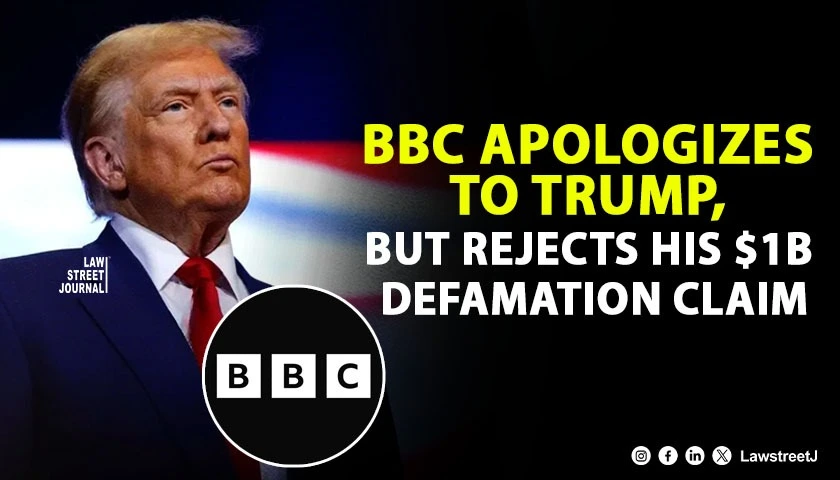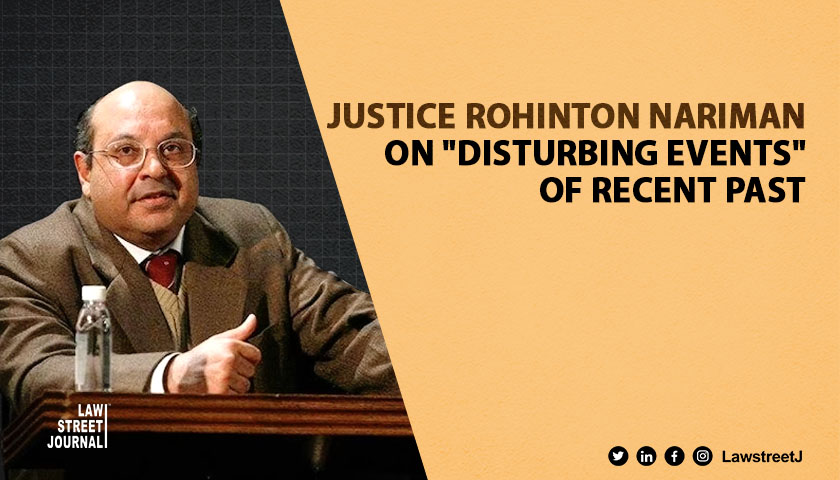United States: The BBC has issued a formal apology to U.S. President Donald Trump for a misleading edit contained in a 2024 Panorama documentary, while firmly disputing the legal basis of a threatened $1 billion defamation action. The development has drawn attention to editorial practices in broadcast journalism and the legal thresholds that apply to defamation cases across jurisdictions.
On November 13, 2025, the British Broadcasting Corporation confirmed that it had sent a letter of apology to the White House regarding an edited video sequence in the Panorama program Trump: A Second Chance?. The documentary, broadcast shortly before the 2024 U.S. presidential election, incorporated a segment from Trump’s January 6, 2021 speech. The edit combined two remarks from the speech — “We’re going to walk down to the Capitol…” and “We fight. We fight like hell” — which were originally delivered nearly an hour apart. The documentary did not include the portion of the address in which Trump encouraged supporters to demonstrate “peacefully and patriotically.”
The BBC stated that the edit unintentionally created the impression of a single, continuous statement. BBC Chair Samir Shah conveyed regret for the error in a letter addressed to the U.S. administration. According to the BBC, the clip was not intended to misrepresent the sequence of Trump’s remarks. The broadcaster noted that the documentary would not be rebroadcast and that internal editorial processes would be reviewed. The BBC clarified that the issue involved the presentation of footage rather than the creation of new content. The organization acknowledged that the omission altered the structure of the speech but reiterated that the error did not constitute defamation. Its statement emphasized that the clip had been edited for broadcast length and narrative flow, while accepting that the omission produced a misleading impression.
Trump’s Legal Team Issues Defamation Threat; BBC Rejects Liability
Following the original broadcast, Trump’s legal representatives sent a notice to the BBC demanding a retraction and formal apology. The notice described the documentary as containing “false, defamatory, disparaging, and inflammatory statements” and warned of a $1 billion lawsuit if corrective action was not taken by November 15, 2025.
The BBC responded by issuing an apology for the misleading segment but rejected the claim that the documentary met the requirements for defamation under either U.S. or U.K. law. Under American law, public figures must prove “actual malice,” which requires showing that a publisher knowingly presented false information or acted with reckless disregard for accuracy. In the United Kingdom, the Defamation Act 2013 requires the claimant to demonstrate “serious harm” to reputation. The broadcaster’s legal team stated that neither standard had been met and cited Trump’s 2024 election victory as evidence that no reputational harm resulted from the documentary’s edit.
The BBC also noted that the documentary’s content had already been publicly debated and that the segment in question did not contain fabricated dialogue.
Legal Observers Weigh In
Legal observers examining the dispute have stated that although the edit appeared misleading, the threshold for proving defamation remains high. The omission of contextual language, they noted, does not in itself demonstrate intentional falsification or harm.
Trump’s team has not yet filed a lawsuit, and the potential jurisdiction — U.S. or U.K. — remains unclear. The case has renewed discussion about editorial oversight within publicly funded broadcasting institutions. The BBC operates under a Royal Charter and is funded through the U.K. television license fee, with oversight from Ofcom and adherence to internal editorial guidelines. Panorama, one of the BBC’s longest-running investigative programs, has previously been scrutinized for editing methods, although recent cases have not resulted in defamation findings.
International defamation disputes often involve questions of jurisdiction. The BBC is based in the United Kingdom, while Trump is a U.S. national and former head of state. If a lawsuit were filed in the United States, it would be evaluated under First Amendment protections for press freedom. If filed in the United Kingdom, the case would require proof of serious reputational damage within that jurisdiction. Legal specialists note that such factors can influence whether a case proceeds and how claims are framed.
BBC Issues Public Statement
In a public statement following its apology, the BBC said, “While the BBC sincerely regrets the manner in which the video clip was edited, we strongly disagree there is a basis for a defamation claim.” The broadcaster added that it had taken steps to prevent similar errors in future programming and reiterated its commitment to established editorial standards.
As of November 14, 2025, there is no indication that Trump’s legal team has submitted a lawsuit. The White House has acknowledged receipt of the BBC’s letter but has not issued additional remarks regarding the dispute. The BBC has stated that it will not broadcast the documentary again and is reviewing its procedures for handling speech excerpts and archival footage in politically sensitive programming.
The matter remains open as both sides have confirmed no further actions beyond the exchange of letters. The incident continues to generate discussion in media law circles concerning the intersection of political communication, broadcast editing, and international defamation frameworks.










